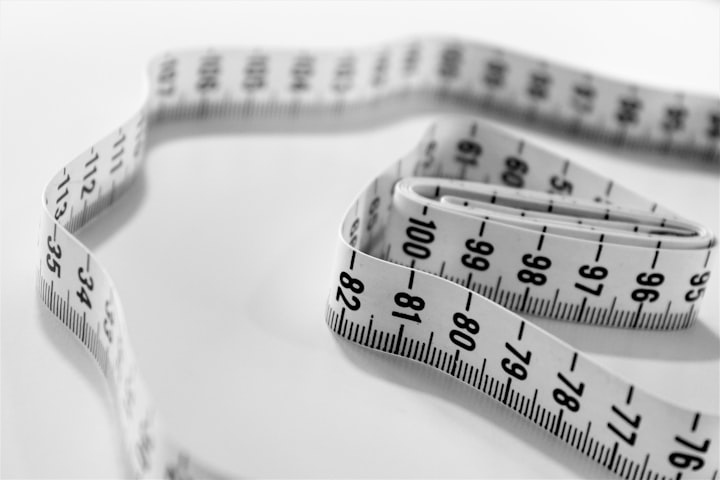How My Past Eating Disorder Affects Me as a Mom
How do you feel about your body? How do you feel about food?

As someone who has struggled with body confidence her whole life, I've had a love-hate relationship with these 2.
***Warning: there are various descriptive, emotional triggers in the rest of this story. Please be advised**
Doing everything and anything to lose weight
From disordered eating, laxatives, cleanses, liquid diets, binging then throwing up, caffeine pills and patches, overexercising (I remember running non-stop around the track until welts formed in my armpits and skin peeled off my inner thighs)to not eating for days…I've done it all.
It started when I was just a kid. I remember I went on my first 'diet' when I was barely 8 years old, eliminating all meat because fat was the enemy at the time.
From the media, not meeting the stereotypical thin Asian body type, negative comments from family and family friends, pressure from myself to meet unattainable expectations, perfectionist tendencies, and toxic comparisons with peers…all these contributed to my disordered eating behaviour.
Trying to get a sense of control
There was a sense of control in it all. If you consumed less food, your body will respond and you will lose weight.
Calories in < Calories out = weight loss. It's a simple equation.
Over time, the more control I had, the more weight I lost. It became a game of creating a never-ending number of increasingly unrealistic food rules to meet.
"One M&M = 100 push-ups."
When you lose control and eat more than you should, then the guilt and self-hate begin all over again.
I remember when I was in Grade 9, I followed all my rules for an entire week. It was after dinner and I was ravenous. I craved peanut butter and jelly sandwich. So I made one and devoured the thing in mere seconds. Licking the jelly off my fingers, I felt my stomach drop. Everything I had done, all that effort I made in that week was down the drain. I had completely fucked up. I lost control. I broke all the rules.
I needed to regain control. I ran to the bathroom and stuck a toothbrush down my throat to make myself throw up. It didn't work.
So I used my index and middle fingers and vomited the red and brown slurry into the toilet. It was quiet. I was in the downstairs bathroom while everyone in my family was upstairs watching TV. The sourness and stomach acids lingered behind my teeth as a wave of relief rushed through my mind and body.
In 2002, I hit rock bottom where I resorted to physical self-harm (cutting) to control my feelings; although it's been 18 years since I've learned to manage my mental health, it doesn't make me immune to those destructive behaviours.
The root cause of my toxic relationship with food
As part of my recovery, I've pinpointed the reasons for my toxic relationship with food: I control my eating as a way to control my feelings.
When I felt inadequate, I ate.
When I felt numb, I ate.
When I felt bored, I ate.
When I felt overwhelmed, I ate.
When I felt like celebrating, I ate.
When I felt successful, I ate.
Then I would feel guilty for eating and resorted to drastic measures to wash away the guilt.
Discovering the real reasons to eat
However, emotions are not reasons to eat.
To be hungry is.
To nourish your body is.
To fuel your brain so it can optimally function while you write and create is.
To feed your muscles so they can hold your children is.
And that took years to figure out, to be in tune with my body, teasing out what feeling I was feeling whenever I wanted to eat.
Does that bag of chips look delicious because I purely crave them?
Or am I trying to mask a deeper issue, wanting to feel better about it?
It's a daily battle. Every meal I eat, I try my best to do it mindfully. Over time, I've come to appreciate and re-invigorate my love for food.
Trying not to project my past onto my kids
I'm extra sensitive to the way I talk about food, how I eat, when I eat and what I eat whenever I'm around my children. I don't want to put an emphasis on it but I also don't want it to be off my radar. I want to teach my kids to have a healthy relationship with food without drawing too much attention to it.
I want to be stealthy, monitoring closely but not too closely (isn't that how all parents feel when the kids get older?)
I'll always think,
"Am I hyper-aware and overreacting to how and what they eat because of my past?
Or is there actually something going on?"
6 Guidelines for developing healthy eating habits with kids (and how it's been going for me)
So here are some guidelines that I've been following and my thoughts and realistic experiences with how that's actually been going.
1. Don't force them to finish their plate
Only eat as much as you need to be full and save the rest for later. This is a mantra I've been saying to myself every day.
This is especially true when going out to eat at restaurants where the portions are often 2–3 times what you actually need in a meal.
Okay…coming from an Asian family where you get punished for not finishing your food, I struggle with this one.
My parents grew up during a time when food was scarce. They were incredibly resourceful; you know, waste not, want not.
I remember my mom would threaten me: for every grain of rice I didn't finish, that would lead to a beauty mark on my face. So obviously, if you ever watch my videos, it looks like I didn't finish rice as a kid.
Every time, she would show us a picture of this male Hong Kong celebrity (I forgot his name) and how his face had all these craters and marks and it was because he didn't finish his rice as a kid.
Then if that didn't work, she would talk about the starving kids in Africa.
Having that ingrained in my childhood makes it hard to break away from that mentality. So when I see my kid leave a last bite of food on their plate, I have the urge to tell them to finish it. Some days I don't catch myself and I'll tell her to eat the last bit. And then other days, I'll just throw it down the garburator instead of the compost so that I don't have to look at it.
If there's a lot left, I'll wrap it up and put it in the fridge.
2. Don't use food as part of a reward and punishment system
When foods are labelled as "good" and "bad", kids associate "good" and "bad" feelings with their food.
If you're good and do what I say, you get a treat.
If you're bad and don't do what I say, you don't get a treat.
You can only have "bad food" if you eat all the "good food" first.
Sure, this works with dogs; however, the owner (not the dog) controls how much and what the dog eats his entire life. And we've all seen owners indulge their dogs a little too much. Just Google "fat dog memes."
Children grow up into adults who are in full control of how much and what they eat. They are accountable to themselves and if they've been conditioned to use food as part of a reward and punishment system, that's how they'll live.
This one's been tough for me to follow 100%. Once my kids had a slice of chocolate cake, a cookie or a candy bar, they were hooked. It tastes good. The sugary sweetness, textures and flavours were designed to be addicting.
So I'll admit I've used treats as motivators to get my kid to do something. It's usually when time is of the essence or I'm at the tail-end of my patience levels and I'm beyond exhausted that day. I've run out of fucks to give and I'll resort to treats. I've also used screen time (Angry Birds on the iPad or Paw Patrol).
Yes, there are other methods and incentives to get your kid to do something like encouraging verbally, showing excitement and pride, validating their efforts, having fun with the task, making it a game, giving non-food rewards like going for a walk, to the playground, to the park or spending time together to do their favourite activity…etc.
Trust me, I've used them all; however, food is just so easy to use. It takes little effort and it's convenient. So in my opinion, it's not a hard and fast rule.
3. Teach them how to enjoy food.
Teaching and demonstrating how to mindfully experience the flavours of food can help kids develop a healthy eating relationship. It's about appreciating the meal in its entirety, how each bite tastes, feels, melts, crumbles, and mushes in your mouth. The moment you sense you are full is a wonderful feeling; you've refuelled your mind, body and spirit to give you the energy to do the things you love.
Personally, this has been a fun one to do. Whenever we eat together, I'll ask between bites what my kids think about the food.
What does it taste like? What's yummy? What's the texture like?
And my sister actually made an observation about us. She said that whenever we start a meal, my daughter and I will both say "Mmmm", nodding and closing our eyes briefly to enjoy the food.
4. Aim to slow down
What's the rush?
Slow down, stop and smell the roses.
Or in this case, put the phones away, turn the TV off, don't multi-task, no toys or games at the dining table and have a meal. We all need to eat so make it a practice to do it without distraction and to savour the moment. When you teach kids to slow down, they'll be more mindful of when they're full.
Also, chewing slowly and thoroughly helps aid digestion and absorption of nutrients and prevents choking (duh). We have all scarfed down a meal and then got punished with gas, heartburn, upset stomach, and diarrhea (no, this is not a Pepto-Bismol sponsored post).
Okay, as I'm writing this, I have an apple in one hand and am typing with the other. To be honest, I don't practice this often when I'm by myself. I really want to but it's hard when you barely have any time for yourself.
Also, I don't know if this is an Asian immigrant cultural thing but growing up, there was this competition around who can eat the fastest, as though faster meant better.
My dad always eats quickly; growing up, he had to eat quickly because he had to share with 7 brothers and sisters. As a family of 10, they would often share one chicken for dinner and if he wasn't fast, he'd get the chicken butt or the chicken neck.
So realistically speaking, I only slow down whenever we're eating together. There are days when everyone's on a different eating schedule; kids and hubby aren't hungry but I am or they are but I'm not. It's also tough because my husband eats quickly so by the time he finishes, my kids and I are only halfway done with our meals.
It's a work in progress; I'm hoping it'll get easier when the kids are older.
5. Involve them in food shopping and meal preparation
When kids understand and appreciate how ingredients are put together to create a meal, they'll learn more about what goes into their bodies and why it's important to make healthy choices. Also, cooking is a life skill and the more they learn, the better prepared they are when they grow up.
This one's pretty easy to do for me. I started cooking, cutting up veggies, baking cookies, grating daikon, and washing rice when I was 10 years old. My mom taught me and let me have free rein in the kitchen. It's definitely something I want to do for my kids when they're older.
6. Eat meals as a family to encourage a pleasant experience
Having dinners together is a great way to bond as a family. It helps to have a set time where everyone gathers around to talk about how their day went and what they did.
Family dinners were the bread and butter of my childhood. Every night, there was an expectation to eat together whenever the food was ready. And that's when the best conversations happen. I learned about my dad's chicken story, how my sisters were doing in school, what they were planning to do after graduation, what was going on at the furniture store my mom worked at, and how she was dealing with interpersonal conflict with her coworkers and manager etc. As the youngest, I absorbed a lot of lessons by observing conversations with those who were going through what I will be going through.
And this is something I absolutely want my kids to be exposed to.
At the end of the day, guidelines are meant to serve as something to strive for. I'm an imperfect mom and I'll try my best to "do the right thing". But I won't guilt-trip myself if I have to look the other way sometimes.
So Readers, what are some healthy eating guidelines that you try to follow? Which are easy to do and which are tough? Let me know in the comments below.
This was originally published on my website on May 13, 2020.
About the Creator
Katharine Chan
Sum (心, ♡) on Sleeve | Author. Speaker. Wife. Mom of 2 | Embrace Culture. Love Yourself. Improve Relationships | Empowering you to talk about your feelings despite growing up in a culture that hid them | sumonsleeve.com/books






Comments
There are no comments for this story
Be the first to respond and start the conversation.